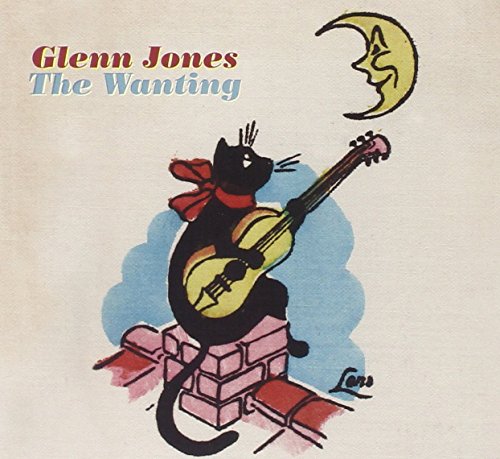
Glenn Jones
The Wanting
Release Date: Sep 13, 2011
Genre(s): Adult Alternative, Folk, New Age, Contemporary Instrumental, Neo-Classical, Solo Instrumental
Record label: Thrill Jockey
Music Critic Score
How the Music Critic Score works
Buy The Wanting from Amazon
Album Review: The Wanting by Glenn Jones
Great, Based on 4 Critics
Based on rating 8/10
Glenn Jones' fourth solo album further underscores the position he has achieved over the years when it comes to both appreciation of and expansion in the field of acoustic guitar composition; perhaps more than ever before, there's a real sense of his own unique style on The Wanting, however inevitably grounded in the many forebears he always carefully acknowledges in his music and work. Part of it lies in his quiet, creative delicacy, emphasizing space and dexterity in equal amount; raggedness has never been his calling card, and the opening "A Snapshot of Mom, Scotland, 1957" beautifully hones in on feelings of contemplation and distance in considered fashion. The languid "Anchor Chain Blues" has a sweet, almost languid feel from the first note, a gentle liquidity that intensifies just a touch as it goes along but without losing the original sense of its genteel flow.
Based on rating 8/10
When I began listening to The Wanting, I was not at all familiar with Glenn Jones. Truth be told, I’m still no expert. Extensive information on this guy is thin on the ground, and neither his solo albums or those by his band Cul de Sac are particularly easy to get hold of. This makes it tricky when it comes to writing a review - this could get vague.
Based on rating 8/10
Glenn Jones considers himself a student of the “Takoma school”, the group of acoustic guitar players that learned from the genius of John Fahey. This movement is sometimes referred to as American Primitive, but Takoma school is more fitting for a skilled player like Jones. Schools are places where we learn knowledge and skills, but then we have to go out and apply those skills.
Based on rating 6/10
With the tragic death of Jack Rose in 2009, the heir apparent of John Fahey in the world of instrumental acoustic steel-guitar became unexpectedly uncertain. Rose, while still alive, surely was the crown prince. His albums extended beyond the hackneyed folklore/primitive metaphors that constantly irk the music (the music has as much to do with folklore as the pianoforte does, and the pianoforte has nothing to do with folk music.) His playing sometimes reached anxious and acidulous climaxes, he attacked his guitar in dizzying mantras fueled by a throbbing dronelike repetition, and like Coltrane, he borrowed heavily from Indian music.
'The Wanting'
is available now

